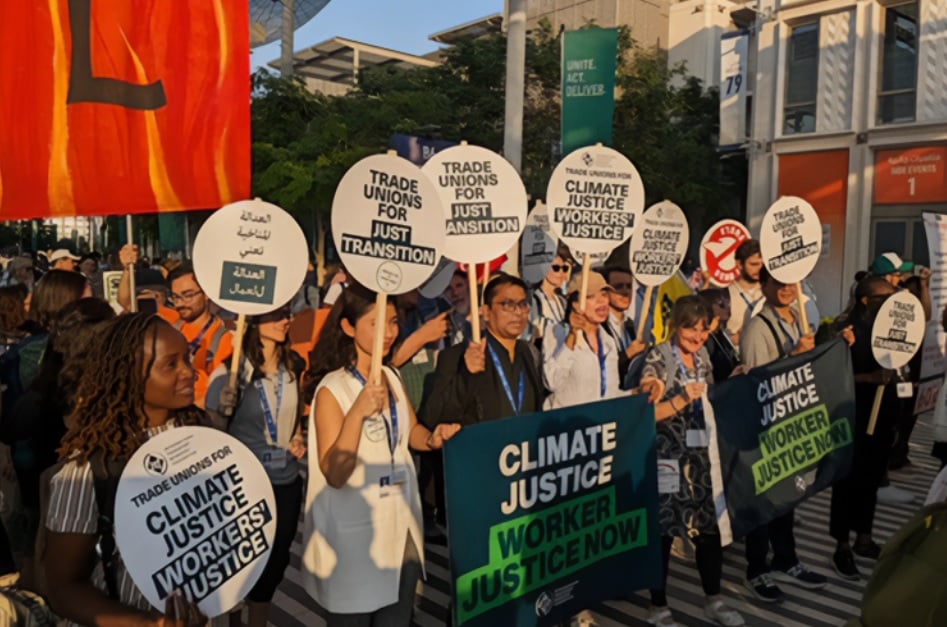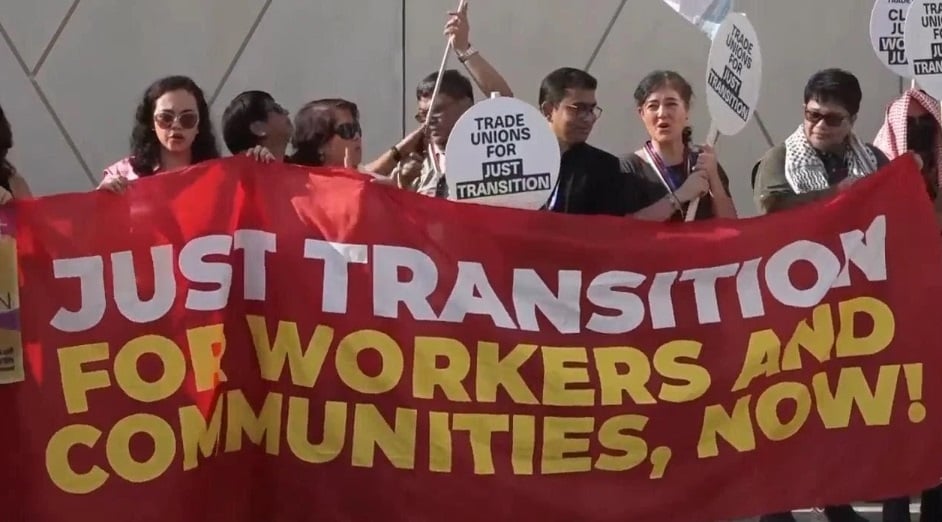E-post: johanne.hovland@lo.no

How are women affected by climate change, and how do we work to ensure that a just transition not comes at the expense of equality? In a new report, LO takes a closer look at how the green transition must include a gender perspective.
The report investigates how women's status, rights and opportunities are deteriorating in the green transition around the world.
It concludes that the green transition has so far prioritized sectors that are male-dominated, for example within fossil industries, energy and transport.
This has come at the expense of women in several ways, because the women's perspective has been missing in restructuring processes, and because female-dominated sectors not are on the agenda in the green transition, which is typically associated with jobs in oil, gas and energy.
Read the full report at the end of the article.

Activists asking for climate justice at COP27.
In several countries in Asia, Africa and Latin America, women are overrepresented in informal sectors, such as care work and agriculture. This makes the transition to green jobs difficult, as these jobs often are outside the formal economy. Additionally, agriculture is typically a sector that is hit hard by climate change, which puts both jobs, food security and livelihoods at risk.
Many reports, including this one, highglight how women are particularly vulnerable in the face of climate change, because it puts already marginalized communities under pressure.
Issues such as land rights, access to credit opportunities, personal security and gender-based violence are exacerbated and reinforced by climate change. If the transition to a low-emission society is going to be fair, it must better include workers, and especially women.

Workers must be included in the just transition.
The labour union movement plays a key role in ensuring that women are included in the just transition to a greener society.
In order to create a more inclusive and just transition, women must be structurally included in the process at all levels from local negotiations to national decision-making authorities and international bodies.
Unions plays a key role in driving the inclusion of women's perspective.
The LO report offers several recommendations on how to involve women effectively. This is includes raising awareness within the unions and facsilitating opportunities for education.
The LO report is based on interviews with partner organizations and trade unions from various countries, and serves as a tool for the global trade union movement to address women's issues in just transition.
E-post: johanne.hovland@lo.no
Telefon: +4791612262
E-post: kamilla.berggrav@lo.no
A just transition involves maximizing the social and economic opportunities of climate action, while minimizing and carefully managing any challenges – including through effective social dialogue among all groups impacted, and respect for fundamental labour principles and rights
It is a holistic strategy aimed at long-term development and encompassing all aspects of transition. Including the social, cultural, economic, and environmental perspective is necessary.
Ensuring a just transition shares activities that are key to twelve of the seventeen Sustainable Development Goals (SDGs) adopted by UN Member States as part of the 2030 Agenda for Sustainable Development Goals.
Source: UN, ILO